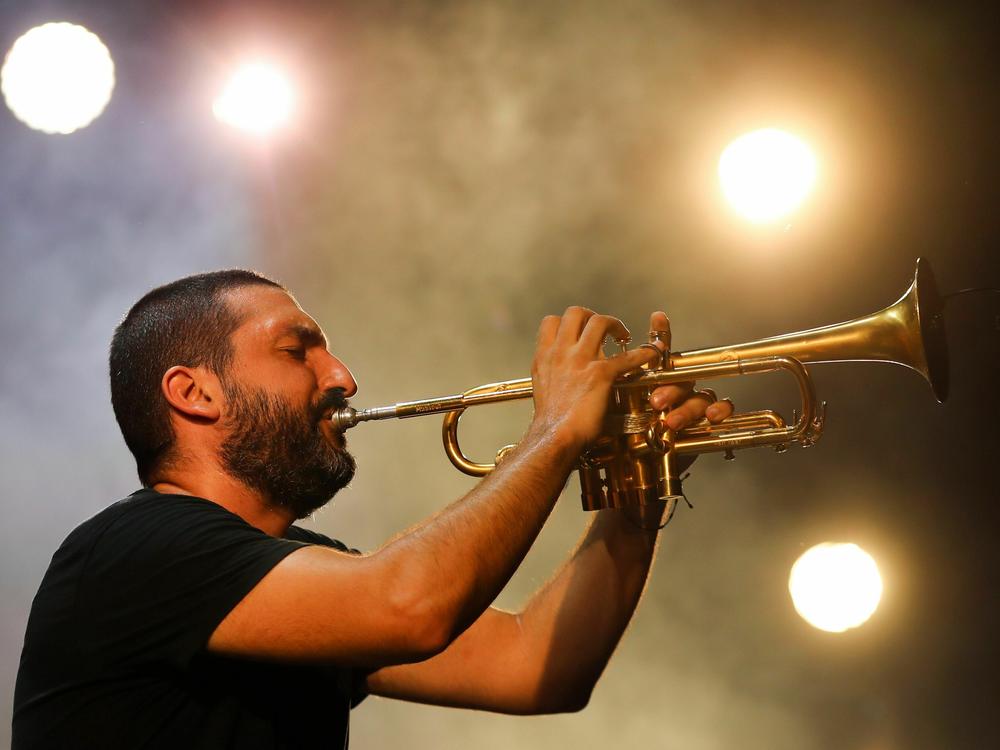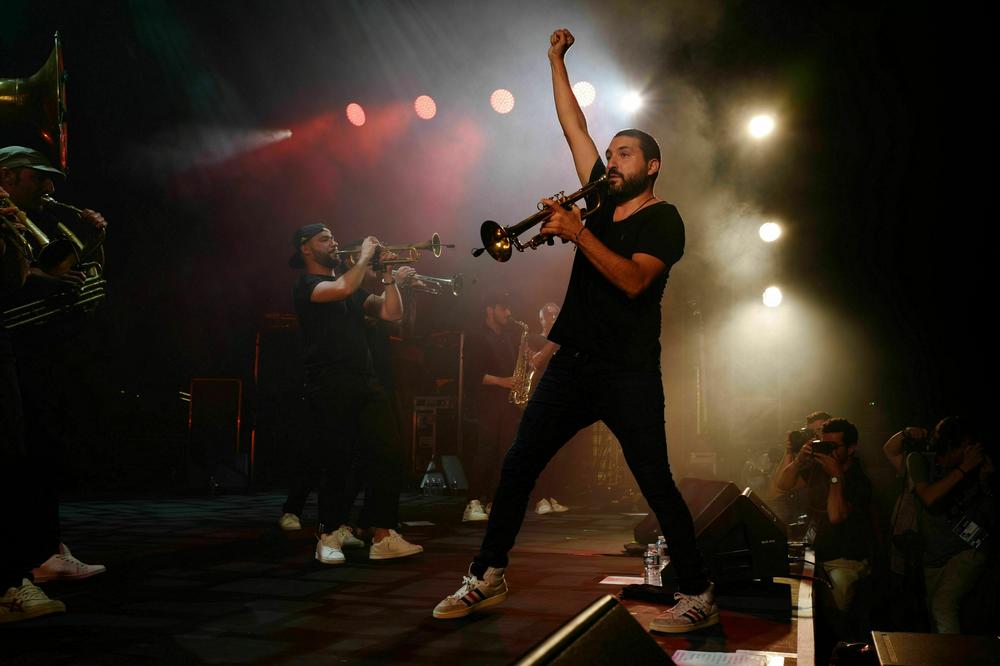Section Branding
Header Content
Trumpeter Ibrahim Maalouf steps out of his comfort zone with 'Capacity to Love'
Primary Content
Every time he works on a new album, trumpet player Ibrahim Maalouf asks himself: Am I doing something new or am I repeating myself? "Am I just releasing album to release an album because this is how I make a living? ... " he asks. "My challenge is every time to try to even surprise myself."
Following the release of his Grammy-nominated album with Angelique Kidjo, the French-Lebanese trumpet player is back with a new body of work titled Capacity to Love, featuring some of the industry's best in pop and hip-hop music.
The album features a wide array of vocalists from across the pop music spectrum — from Cimafunk and Tank and the Bangas to hip-hop artists Erick the Architect and De La Soul.
"I love hip-hop culture, I love all American culture," Maalouf says. "You cannot be European, for example, or even a Lebanese person, without having a big part of your culture that is American. Because you watch TV, you watch movies, you listen to pop music. So all this is American influence, no one can deny that."
Maalouf invited some little-known artists and a few bigger names to record on the album. The title Capacity to Love came from singer Gregory Porter after the two musicians had a long conversation about the ideas and philosophy behind the album. Maalouf says this project is the first outside his comfort zone.
Bringing a trumpet competition back to life
Maalouf credits much of his career to his father's mentor, Maurice André, who inspired generations of trumpeters. When an international trumpet competition in André's honor went on a 16-year hiatus, Maalouf felt a responsibility to revive it in Paris to honor both men.
"Ten years after the loss of Maurice André, we need to bring it back," he says. Because it's the name of Maurice André, it's what he brought to me, to my father and to our family, and I cannot forget him."
French trumpeter Clémente Saunier says André's influence helped Maalouf understand the power of his instrument, blending his father's legacy of Arab music into other sounds. "Adding this to a classical and jazz and world music style," he says. "I think this image of finally, 'everything is possible if I play the trumpet', it's not just playing in the last seats of the band."
Finding common ground
The hard work has paid off. Maalouf has been nominated for a 2023 Grammy for his Queen of Sheba album with Angelique Kidjo. It's a seven-part suite connecting Africa to the Middle East. Kidjo wrote songs in the Yoruba language, inspired by riddles the Queen of Sheba posed to King Solomon. Maalouf composed and arranged the music. Kidjo says she chose riddles that are relevant in the world today, such as Ahan about the power of the word.
"We need to talk to one another and find common ground," Kidjo says. "Because it's our fate, we are made to live together, and if we lose the ability to talk to one another then we start killing one another."
Common ground is Maalouf's main theme on his new album, Capacity to Love. His ideal world is explored in the video of the song El Mundo, featuring Brazilian singer Flavia Coelho and DJ Tony Romera.
"It's a world where there's no judgments," he says. "We don't judge people on the appearances, or on the way they live. We just accept and that doesn't threaten your identity. When you accept people in your family, it doesn't mean that they're going to change you, it doesn't mean that you're threatened. It just means that we share values."
Maalouf says he doesn't expect an album to change the world but he is hopeful.
Copyright 2022 NPR. To see more, visit https://www.npr.org.


